Boosting Serotonin Naturally: Diet and Supplement Strategies
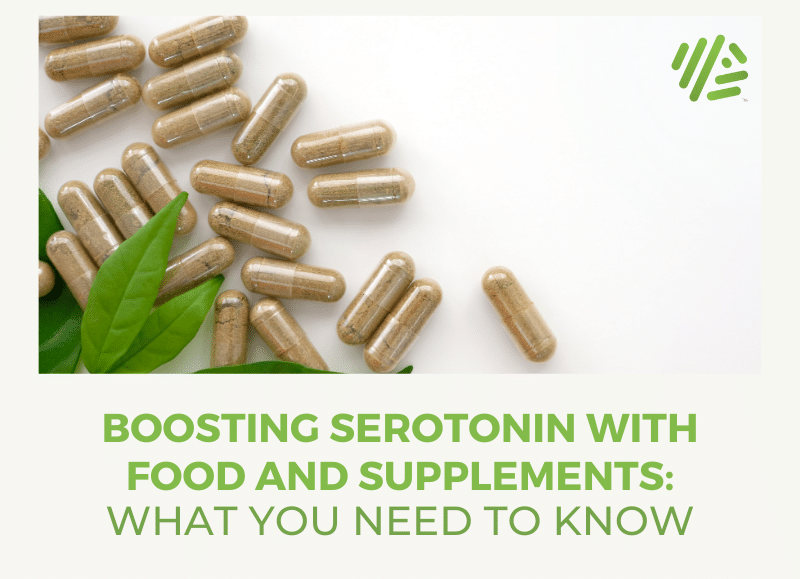
Contents
We’ve all heard of serotonin, the “feel good” neurotransmitter that regulates sleep, mood, and sex drive. And because of its role in an overall sense of wellbeing, serotonin maintains a coveted place in the popular culture, especially in the supplement industry.
Many people take supplement pills like 5-HTP to boost serotonin levels, but is this safe? In this post, we cite quite a bit to the work of Richard Wurtman, in his book Food Components to Enhance Performance: An Evaluation of Potential Performance-Enhancing Food Components for Operational Rations.
How the body makes serotonin
The body uses the amino acid L-tryptophan as the precursor to serotonin. The interesting thing about L-tryptophan is that it does a poor job of competing with other amino acids for uptake into the brain, where it is then ultimately used to make serotonin.
High-protein meals may lower serotonin
We would assume that high protein meals, that contain greater amounts of tryptophan, would cause the greatest spike in serotonin levels, but studies show just the opposite is true. Eating a portion of turkey causes levels of tryptophan in the blood to rise, but tryptophan circulating in the blood isn’t usable by the brain to make serotonin.
Why?
Early analysis in rat models revealed that it’s not the plasma tryptophan that is the issue for serotonin production, the issue is the ratio of tryptophan to other “competitive” amino acids fighting for space in the brain. Studies in rats showed that eating a meal of carbohydrates and fat, but no protein, increased serotonin, whereas a protein rich meal decreased serotonin. Interestingly, when the experiment was performed in humans, the meal of fat and carbs did not increase serum tryptophan, but it did increase serotonin in the brain.
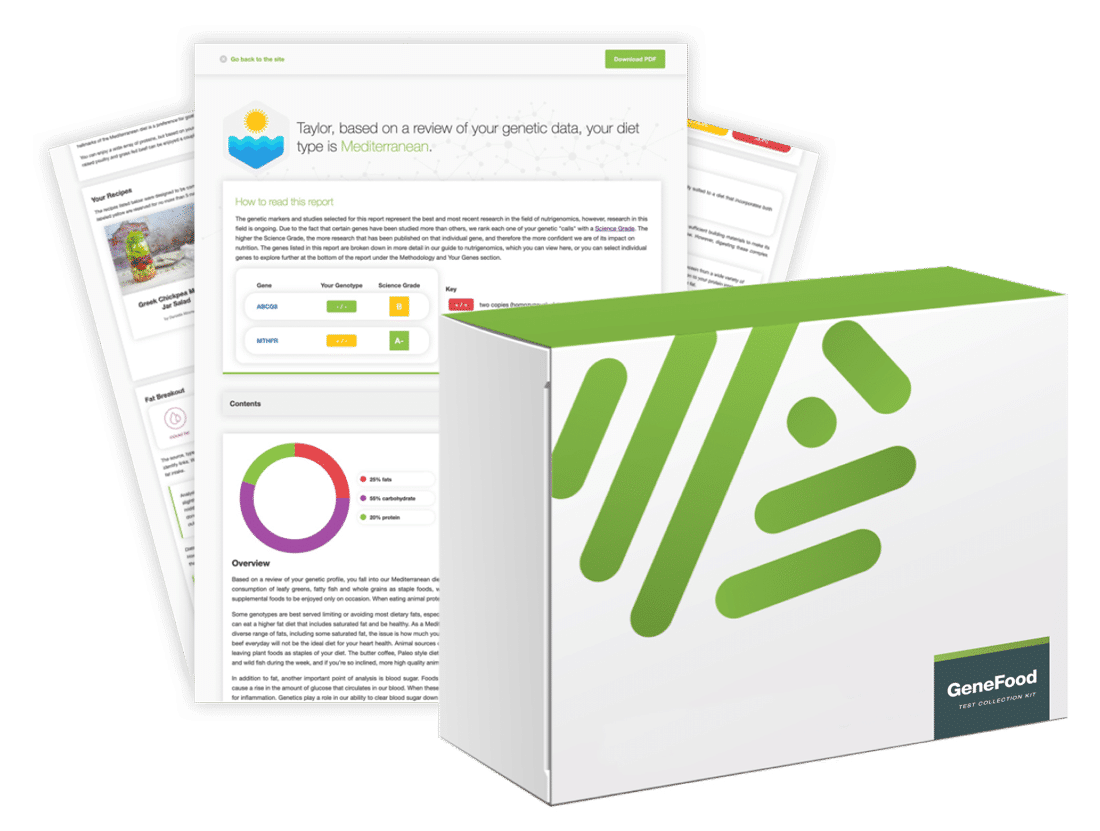
Get Started With Personalized Nutrition
Gene Food uses a proprietary algorithm to divide people into one of twenty diet types based on genetics. We score for cholesterol and sterol hyperabsorption, MTHFR status, histamine clearance, carbohydrate tolerance, and more. Where do you fit?
The role of insulin in serotonin production
Why do high carb meals boost serotonin? The mechanism seems to be insulin. Carbohydrate rich meals were shown to increase tryptophan levels in the brain (not in the blood), because levels of most other competing amino acids are lowered when our blood sugar spikes. Like most amino acids, tryptophan levels in the blood go down with insulin spikes, but they compensate by binding to other molecules, which makes them usable by the brain to make serotonin. In essence, tryptophan does a poor job of competing against other amino acids for uptake in the brain, and it needs a “clear playing field” to get to the brain to make serotonin. Insulin is what clears the playing field.
Insulin causes nonesterified fatty acid molecules to dissociate from albumin and to enter adipocytes. This dissociation increases the protein’s capacity to bind circulating tryptophan; hence, whatever reduction insulin causes in free plasma tryptophan levels is compensated for by a rise in the tryptophan bound to albumin, yielding no net change in total plasma tryptophan levels in humans.
So, the lesson here is amino acids compete for binding sites in the brain. Tryptophan does a bad job of competing against other amino acids, and therefore uses insulin to get in the brain where it needs to be to make our feel good friend serotonin. When plasma levels of other amino acids fall, the ability of tryptophan to get into the brain increases.
Serotonin boosting supplements
As it pertains to food, we’ve learned that foods that are highest in tryptophan are not necessarily the ones that will increase uptake of serotonin to the brain and ultimately serotonin levels. Perhaps somewhat counterintuitively, carbohydrate rich meals actually help the body make serotonin. So, what about dietary supplements? There seems to be a never ending list of “nootropic” supplements that make grand claims about boosting mood and cognitive ability. None of these supplements are FDA approved, but they can have an impact on neurotransmitter levels in the brain. Which of these supplements increase serotonin? Let’s dig in and find out.
Serotonin supplements and their side effects
| Supplement | Too much/adequate | Notes |
|---|---|---|
| 5-HTP | Potential for too much | Can have very unpleasant side effects depending on dosage, may affect other neurotransmitters |
| SAM-e | Too much | May interact with other drugs or supplements aiming to also boost serotonin |
| Saint John's Wort | Too much | Side effects, plus potential to dangerously increase serotonin if taken with other serotonin boosters |
| Low-dose Vitamin B6 | Adequate | Low levels of B6 associated with depression, but high levels associated with nerve damage |
| Vitamin D | Adequate | Vitamin D deficiency is linked to low levels of serotonin and depression |
| Omega-3 fatty acids | Adequate | DHA may promote serotonin receptor activity, while EPA promotes serotonin release; not all see a positive effect |
| Rhodiola Rosea | Adequate | Rhodiola rosea extract can elevate serotonin (5-HT) levels in the hippocampus. |
| Theanine | Adequate | Linked to serotonin and dopamine levels, but unsure how L-theanine induces effect |
Serotonin boosting supplements we don’t like
5-HTP (too much serotonin)
We begin the conversation with 5-HTP, as that is the supplement most would mention when talk of boosting serotonin comes up. 5-HTP (potential for too much serotonin)Just as there are multiple steps in converting folate into methylfolate, the form of folate the body can readily use, tryptophan undergoes a conversion process on its way to becoming serotonin. As part of that process, L-tryptophan becomes 5-HTP. 5-HTP is especially popular as a serotonin boosting supplement, as there are safety concerns surrounding taking L-tryptophan as a supplement directly, and many studies looking at L-tryptophan supplementation show only middling results, presumably because amino acid balancing was not taken into account. 1 And, in light of Wurtman’s work, I find the concept of a tryptophan supplement odd to begin with as it’s not the serum tryptophan, but the neutralization of more cognitively bioavailable amino acids that seems to dictate serotonin levels.
5-HTP Side Effects
The scientific consensus has stark warnings on the use of both L-tryptophan and 5-HTP, see this strongly worded article for an example. 2 The authors summarize the issue perfectly in their conclusion so I’ll just quote verbatim (emphasis mine):
5-HTP in the treatment of depression has languished for years. Intuitively, the potential is extraordinary, but from a practical level efficacy is no better than placebo. In review of the science, effective integration of 5-HTP into a patient management plan is much more complicated than simply giving some 5-HTP in order to have more serotonin throughout the system.
Administering serotonin or dopamine amino acid precursors should never involve administration of only one amino acid. Improperly balanced amino acid precursors are associated with decreased efficacy, increased side effects, and depletion of the nondominant system.
So, bottom line is that an amino acid precursor, like 5-HTP, may increase serotonin, but it does so at the expense of your other neurotransmitters. It’s an interesting paper, and I found this image particularly useful in understanding the neurotransmitter-amino acid balance, and some of the severe issues that can arise from 5-HTP supplementation, namely depletion of dopamine.
Image from 5-HTP efficacy and contraindications, Hinz M et al, 2012.
Interestingly, the authors talk about an approach to achieve a balanced administration of 5-HTP using a technique called monoamine transporter optimization (MTO), which measures and balances serotonin and dopamine, giving optimized individual dosing targets. I’ll admit this is a new technique to me and so I’m not sure how widely available it is as a test. Thing to remember here is that neurotransmitters, and the amino acids that make them, all act in concert. Flooding the system with one won’t give you the feeling you’re looking for, at least not for long.
SAM-e (too much serotonin)
S-Adenosyl-L-methionine (SAM-e) is another commonly used nutritional supplement. Although it is not FSA approved, generally SAM-e has a pretty good safety profile with limited side-effects and numerous studies have demonstrated a positive effect for the treatment of depression. However there is some concern that due to its action SAM-e can interact with drugs and other supplements that are aiming to boost serotonin levels, 3 promoting dangerously high serotonin levels. 45 For now, it’s important to note that the effects of SAM-e are likely to be widely varied and the possibility of side effects, including insomnia, is very real.
Saint John’s Wort (too much serotonin)
St. John’s Wort (Hypericum perforatum) is another commonly used serotonin booster and the mechanism for how it acts is actually really interesting, especially how it links in with tryptophan and 5-HTP. As you can see in the image below tryptophan isn’t just converted by TPH into 5-HTP, there are also other enzymes which convert it down an alternative pathway tryptophan 2,3-dioxygenase or TDO, being the major driver. St. John’s Wort functions by blocking TDO activity, which then forces more tryptophan to be processed by TPH.8 This action has been associated with several positive health benefits including its use as a cancer therepautic,9 and depression.10 Although the cancer angle is relatively novel and there is conflicting evidence about the use of St. John’s Wort in depression as well.11
Image from ResearchGate. Regardless of its effect it is a widely used supplement, but should people be concerned? As with SAM-e there is the potential to dangerously increase serotonin levels if taken in conjunction with other serotonin boosters, and several quite serious side effects have been described.12 Another one to approach with caution.

Gerald Dropped His LDL-C by 100 Points With Diet Alone
Gerald was an ultramarathon runner, but despite his dedication to fitness, he was struggling with rising cholesterol levels, increasing blood pressure, and low energy.
Serotonin boosting supplements with potential efficacy
We’ve listed three we would recommend avoiding, or approaching with care. Are there any serotonin supplements that can have a beneficial effect without the side effects?
Low dose vitamin B6
Vitamin B6 is a key cofactor for the enzymes involved in converting tryptophan to 5-HTP and then on to serotonin. So it is no surprise that low levels have been associated with depression. 13 While some benefit with supplementation has been observed, very long term studies (at least in women) did not show any long term benefit. 14 When supplementing with B6, it is important to take very low doses, as high dose B6 has been associated with nerve damage.
Vitamin D
Vitamin D is another good candidate here. Known for its association with sunshine, and the fact that many of us are deficient. There are numerous studies linking this deficiency with low levels of serotonin and depression, and especially seasonal affective order (SAD), with strong evidence that supplementation may be beneficial including this high powered systematic-review.15161718 We even have some idea of a mechanism with both TPH1 and TPH2, genes which encode for enzymes which convert typtophan into 5-HTP (and then onto serotonin), containing sequences to which vitamin D can bind, and promote activity.19
Omega 3 fatty acids
Omega-3 fatty acids are often described as brain food (but as John describes, not all fish oil is created equal). Omega-3 fatty acids in the brain are typically either docosahexaenoic acid (DHA) or eicosapentaenoic acid (EPA), and low blood concentrations of each have found to be reduced in patients with a variety of psychiatric issues.2021 However, the evidence supporting supplementation as a target is somewhat less strong.22 DHA is thought to promote the activity of the serotonin receptor in the brain, making it more receptive to serotonin signals and thus boosting mood. 23 Whereas EPA is actually thought to promote serotonin release in the brain.24 This dual approach is supportive of the important role for omega-3 fatty acids in the serotonin pathway. What remains unclear is why not all individuals see a positive effect following supplementation given such a clear pathway exists.
Rhodiola rosea
Research involving depressive rat models has demonstrated that Rhodiola rosea extract can elevate serotonin (5-HT) levels in the hippocampus. Notably, a low dosage of the extract not only restored serotonin levels but also promoted neural stem cell proliferation, aiding in the repair of hippocampal neurons.
L-Theanine
L-theanine supplementation can have a positive impact on mood. So it is unsurprising to see that a direct link between L-theanine and serotonin and dopamine levels exists.25 However, while a strong mechanism for the various vitamins and omega-3 oils has been described, we’re not currently sure exactly how L-theanine induces its effect.
Closing thoughts
There are very real safety concerns with many serotonin boosting supplements. Proceed with caution and discuss any new supplement with your doctor before experimenting. Readers of this article may also enjoy our article on the bioavailability of curcumin supplements.

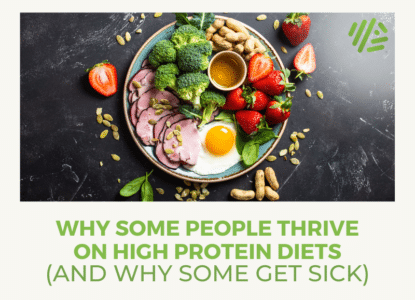
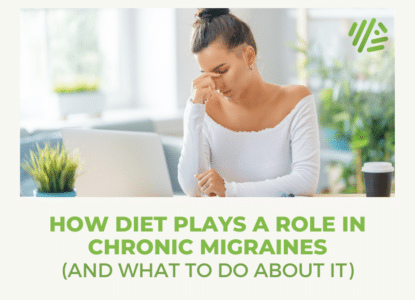
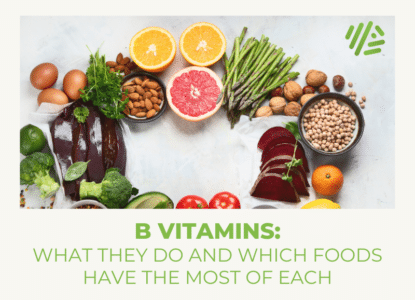
What is considered a low dose of vitamin B6 is it better to take it at night or in the day? Can I take 5-htp with L- theanine at night to help me sleep better or should I take Gaba with my L-theanine for better sleep?
As a non-academic vegetarian looking to safely and naturally balance my serotonin levels, I found your article very interesting, and accessible. As for the bottom line on safe serotonin supplements, my perhaps mis-informed question, is this: Of your 4 recommended supplements at the end of the article, is one to choose only one, or all or a combination?
Thank you
CJ
I found this article very helpful and considering I just started p5p for insomnia and high estrogen. It’s interesting that you didn’t mention estrogen considering estrogen diverts tryptophan away from serotonin metabolism and toward the kynurenine pathway. But, I can’t claim finding this research on my own as I had a Dr tell me this.
Flooding the body with any nutrient or neurotransmitter will cause down regulation of the receptors as a protection mechanism. A negative feedback loop can also cause less natural production of the neurotransmitter or hormone